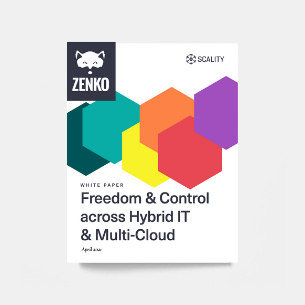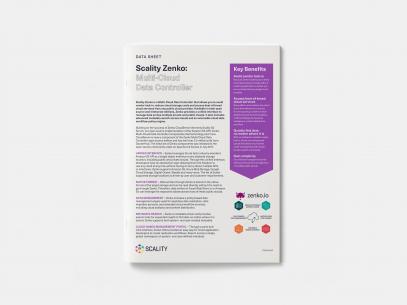Our open-source philosophy
Advancing sustainable tech with open source
Scality believes that collaboration is the best way to advance software technology. Sustainable, open-source innovation drives our progress — we use and contribute code to build core functionality right into our products. Scality aims to be a fair, balanced and committed contributor. Our design principles value openness, and we strive to connect the open-source and enterprise worlds.
STARS
Zenko on GitHub
STARS
MetalK8s on GitHub
STARS
CloudServer on GitHub
Open is our history

Since our founding in 2010, we’ve remained committed to open communities and development — sharing knowledge and contributing to OpenStack, Kubernetes, COSI and more. We are active members of the CNCF and SODA Foundation.
When object storage was in its infancy, we were one of the first adopters of S3 with an open-source project called Droplet, a client C library implementing object storage APIs. We also supported OpenStack with contributions to Cinder and Swift. This marked our entry into the open community, and we haven’t stopped since.
CLOUDSERVER
In 2013, our interest and research in object storage resulted in the CloudServer project. CloudServer is an open source object storage project to enable on-premises S3-based application development and data deployment choice. CloudServer was one of the first Amazon S3-compatible object storage API servers deployed on Docker. The open source community welcomed the project, and we still utilize some of their early contributions. Used by the community both alone and as a component in Scality products, CloudServer is one of our most successful open source projects. Learn more about CloudServer on GitHub.
ZENKO
With Zenko (now also a modular configuration to complement RING), we took our commitment to open source to the next level. In 2017, our dedicated engineers built and released an open software code-base for managing data across all three public cloud providers (AWS, GoogleCloud, and Azure). Zenko is cloud-agnostic, providing a unified namespace, access API and search capabilities for data stored locally or in public cloud storage services. Zenko open source software offers control over data — liberating users from cloud vendor lock-in. Learn more about Zenko on GitHub or on Zenko.io
METALK8S
Zenko was originally designed to be deployed on any Kubernetes cluster. To bring Zenko on-premises, we started the MetalK8s project. For production deployments, we needed things like monitoring capabilities, log management, user authentication and other security concerns, load balancing and many other key services that are not part of Kubernetes’ core.
We, therefore, decided to create MetalK8s as an open-source project, an opinionated Kubernetes distribution with a focus on long-term on-prem deployments. Our latest release with MetalK8s was built to deploy Zenko on bare metal (on any server or available VM). Although it’s fine-tuned for Zenko deployments, MetalK8s can be used for any application built to run on Kubernetes. Learn more about MetalK8s on GitHub.
BERT-E
To improve our own product releases with quality, speed and innovative features, we created a release process model coined: GitWaterFlow. It proved so useful that, in 2016, we created our own “release automation software” called Bert-e and opened the code base for everyone to enjoy. Learn more about GitWaterFlow and Bert-e on GitHub.
QUADIRON
Our team was doing research in the field of data governance and security. The outcome of this research is QuadIron — an open source C++11 fast erasure coding library for large numbers of data and parities. It was presented at the Storage Developer Conference in 2018 (watch the recording here). Get the QuadIron white paper, or learn more about QuadIron on Github.
For more open-source details on Scality, visit us on GitHub.
Scality Kubernetes experiences, learnings and future
Nicolas Trangez, principal architect at Scality, presents the use of Kubernetes in Scality storage products, the company’s experience with Kubernetes and other cloud-native technologies, plus examples of open-source projects Scality launched to deploy Kubernetes on-premises to run an enterprise-grade storage system. Learn how Scality can provide storage for container workloads.
Open-source assets

Zenko White Paper

Zenko Data Sheet
Read more about Scality open source
June 11, 2020
Scality expands vision of multi-cloud data orchestration with deep AWS S3 integration in Zenko
![]() San Francisco, California, United States
San Francisco, California, United States